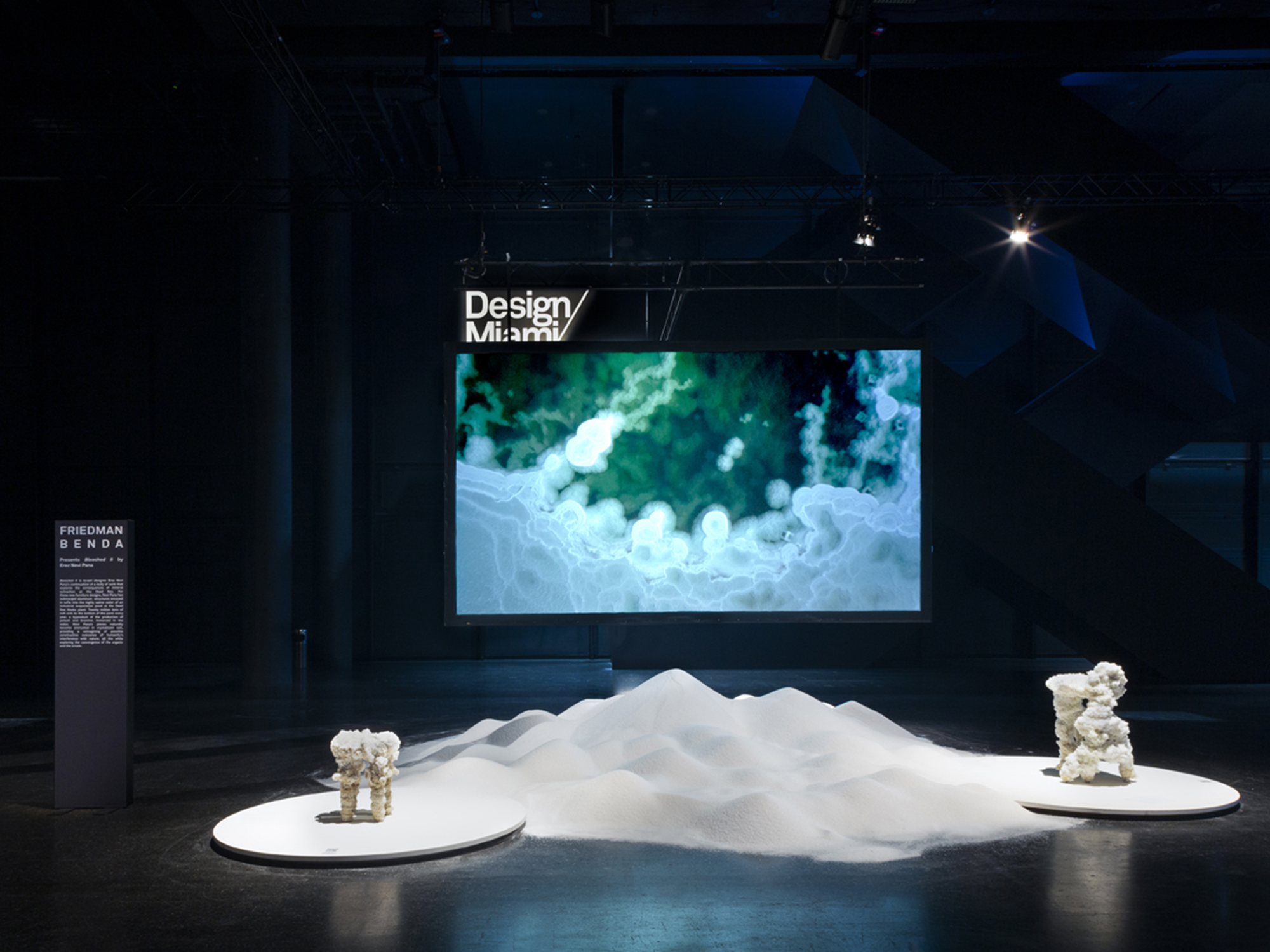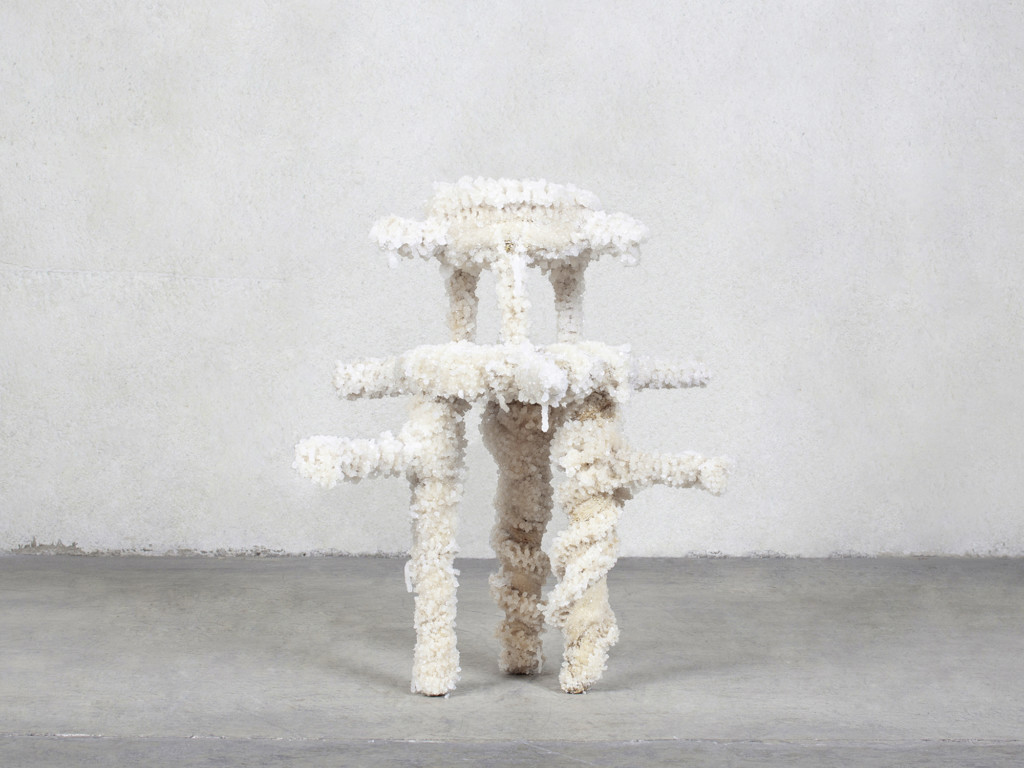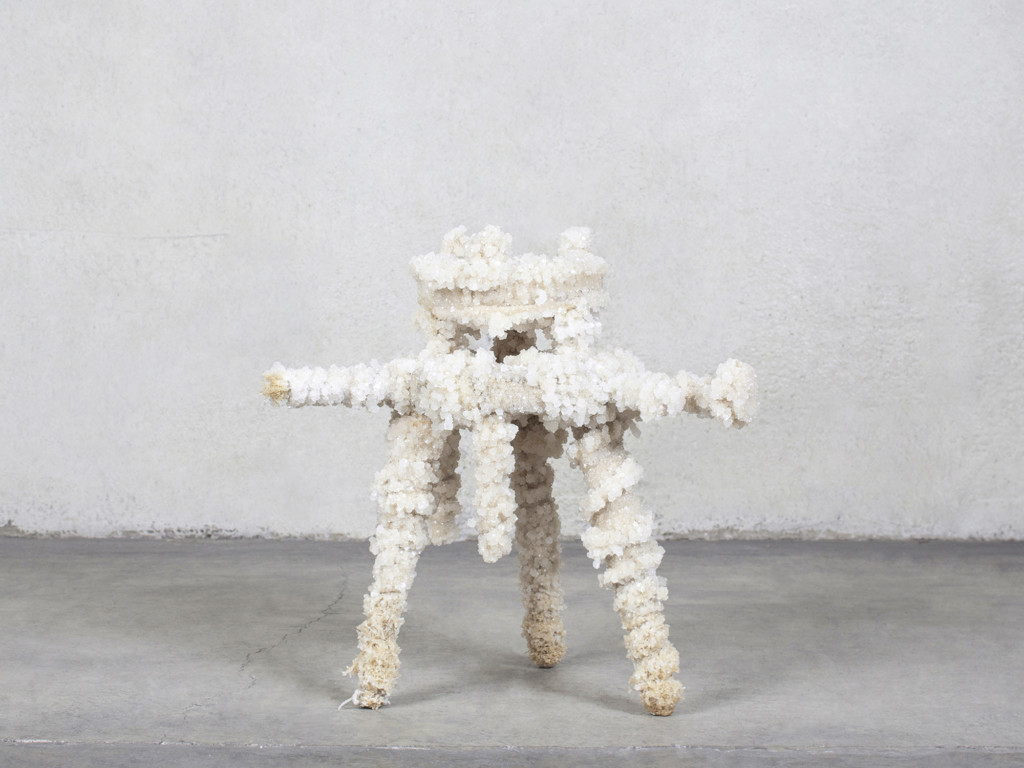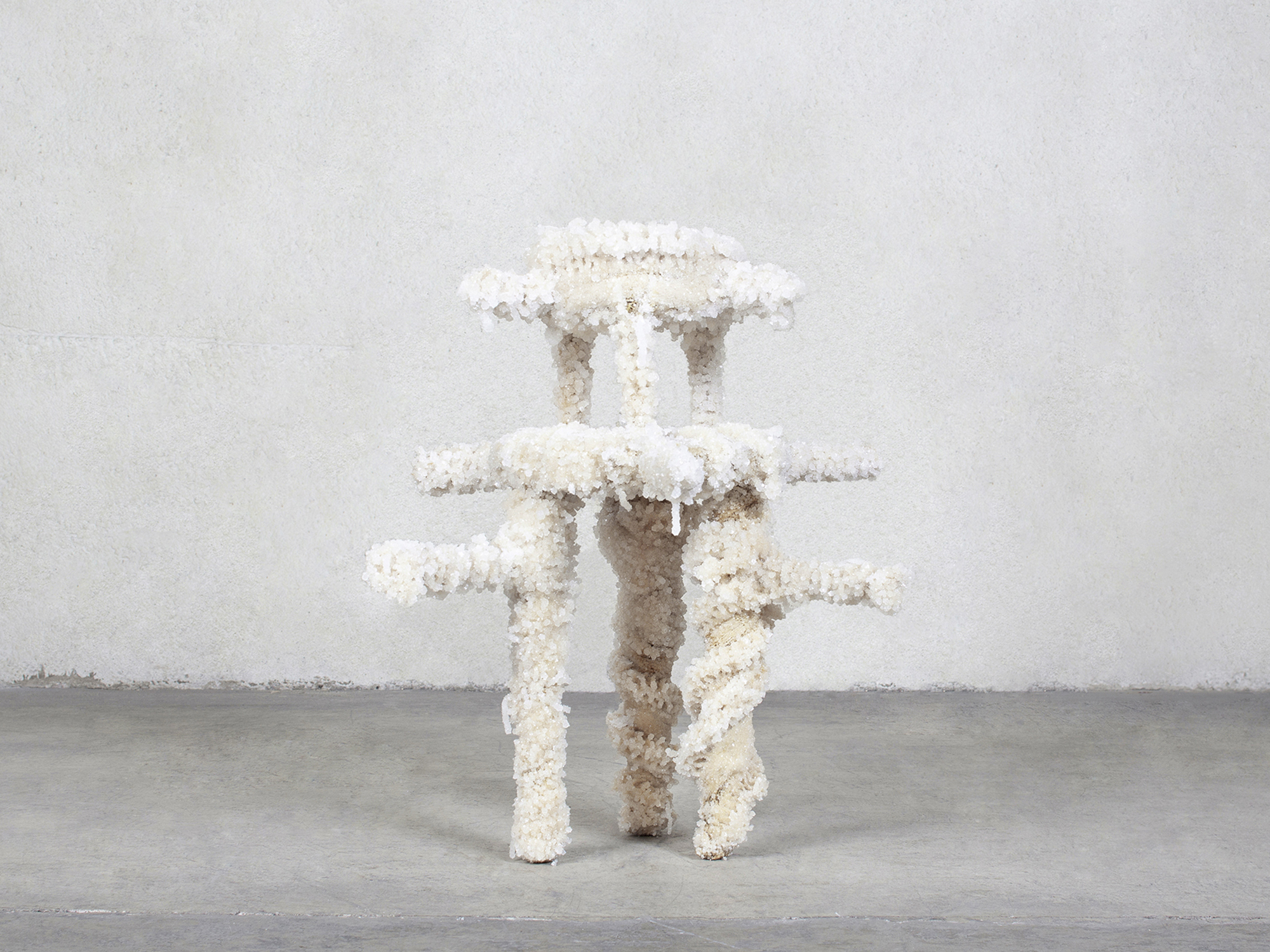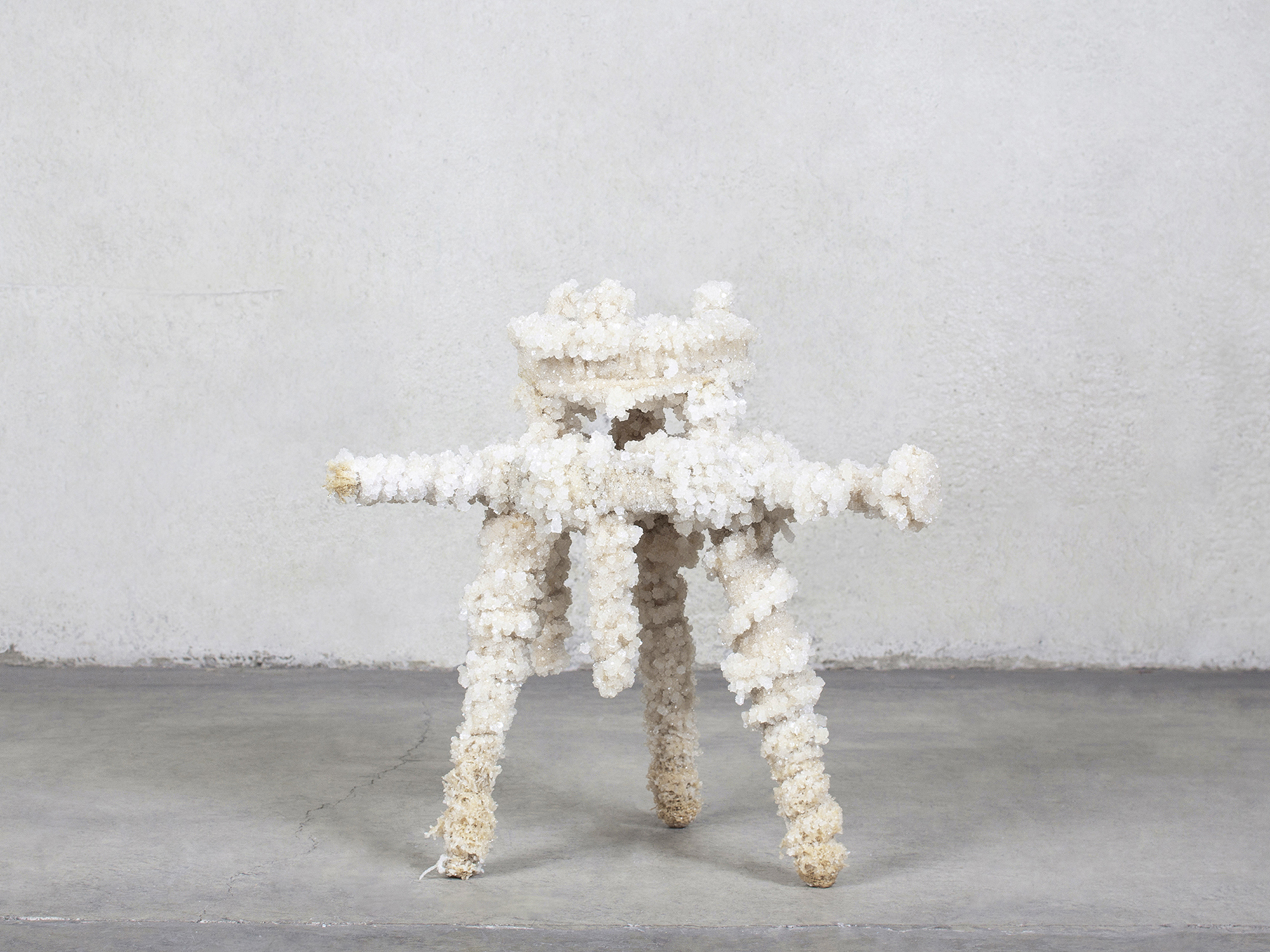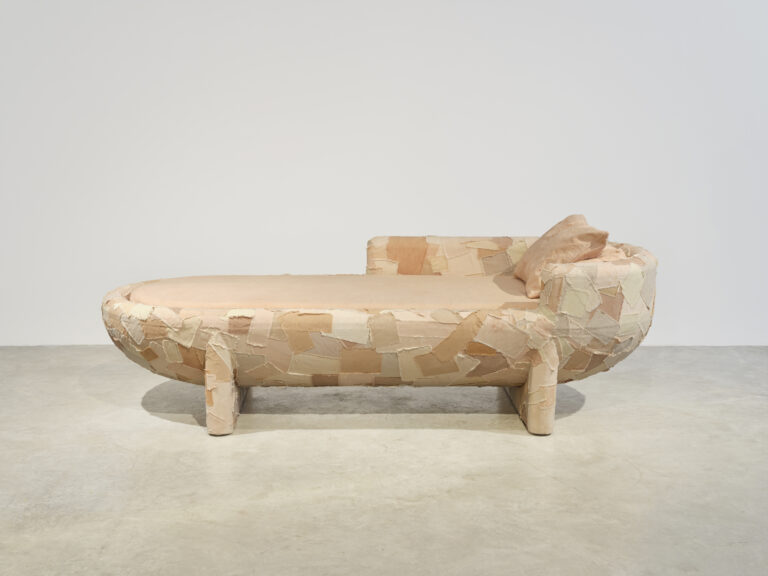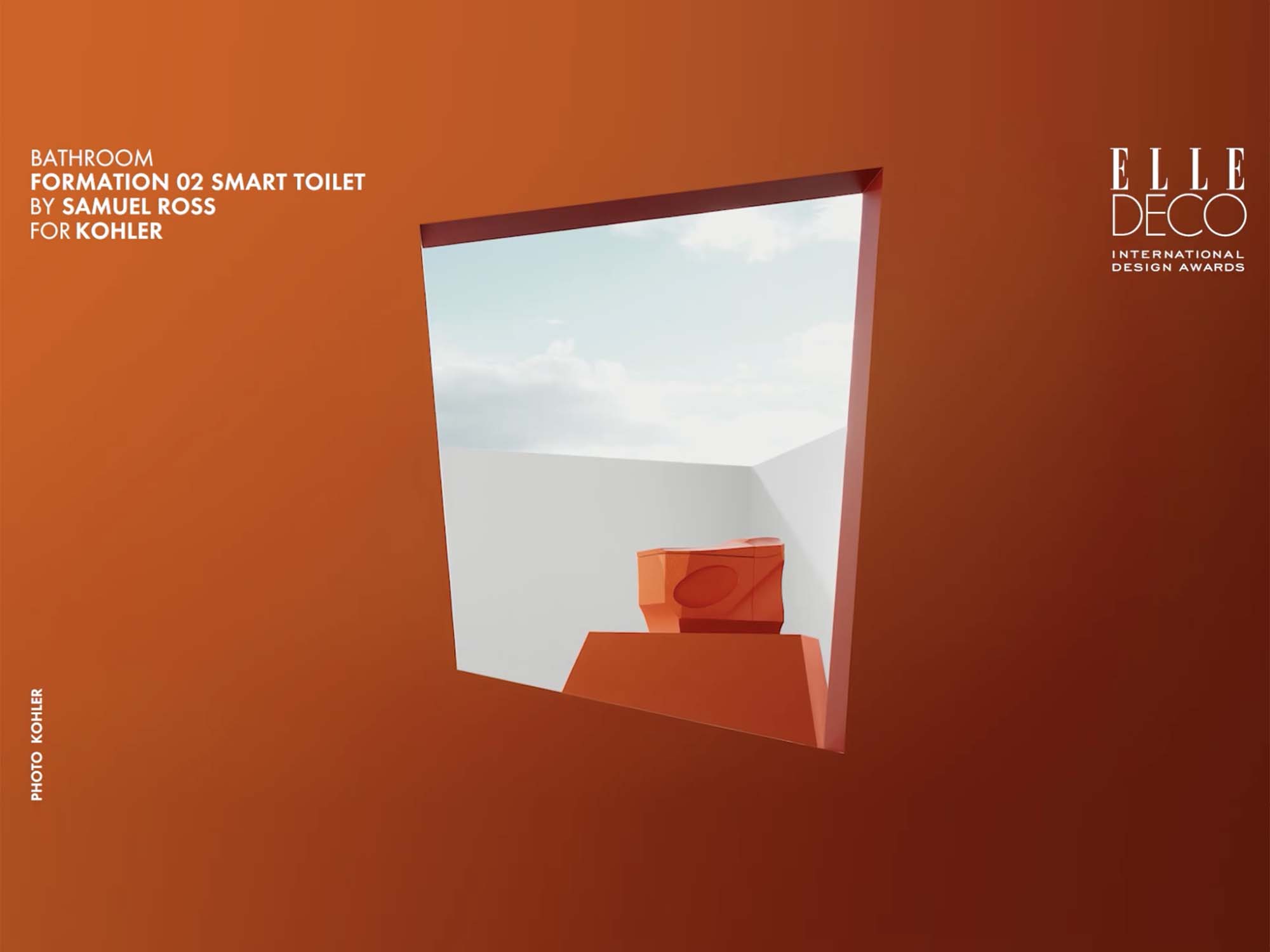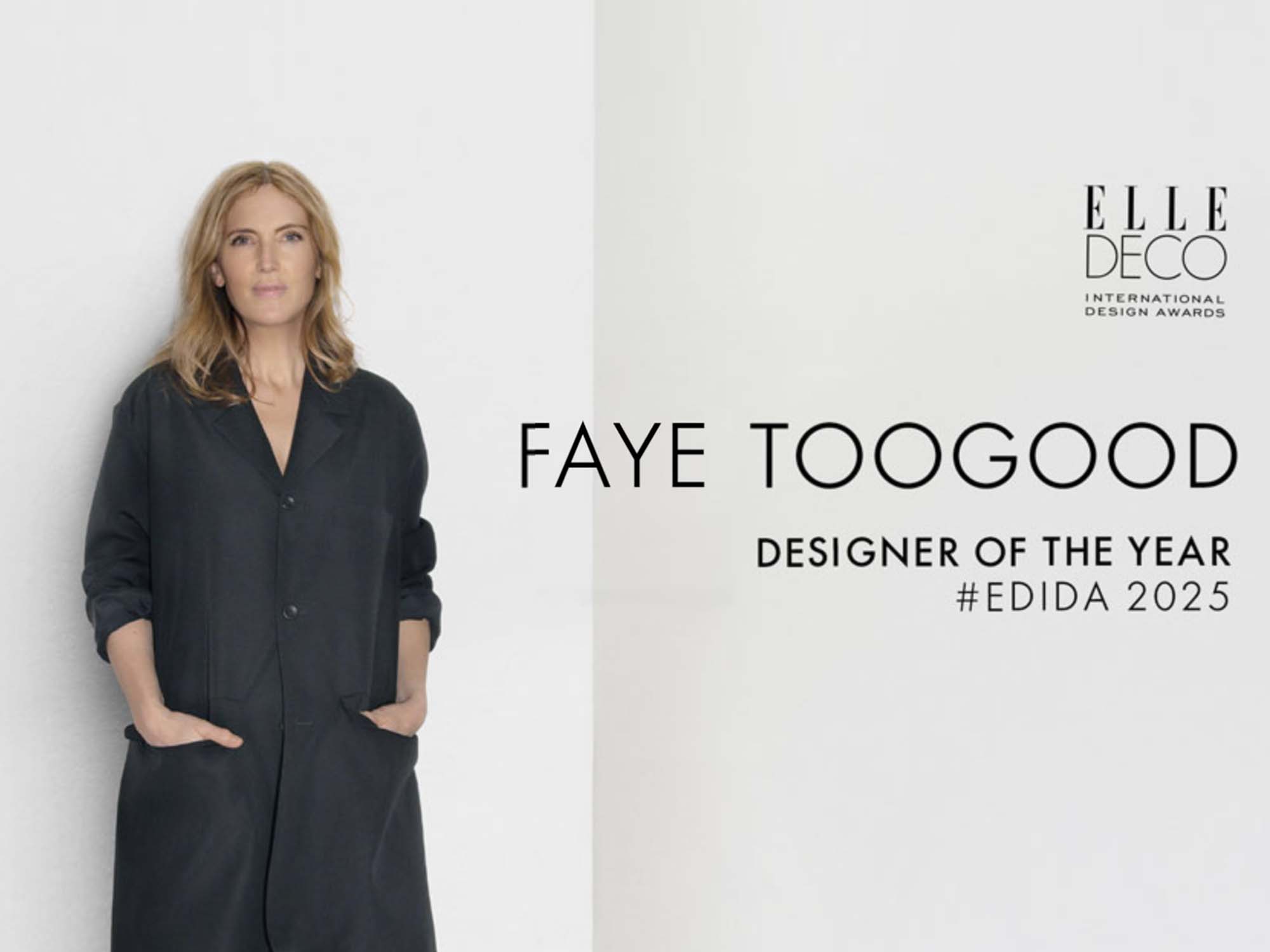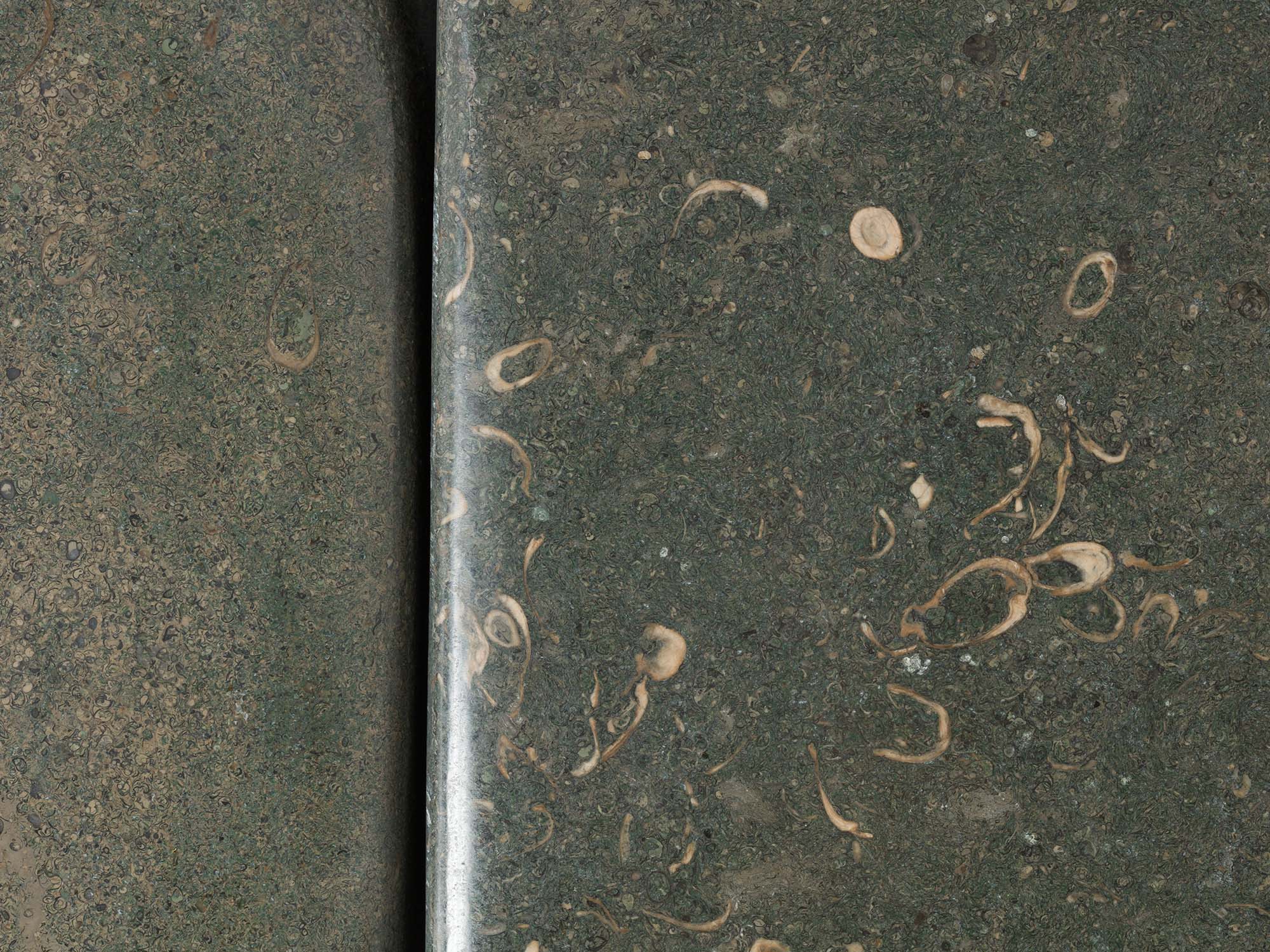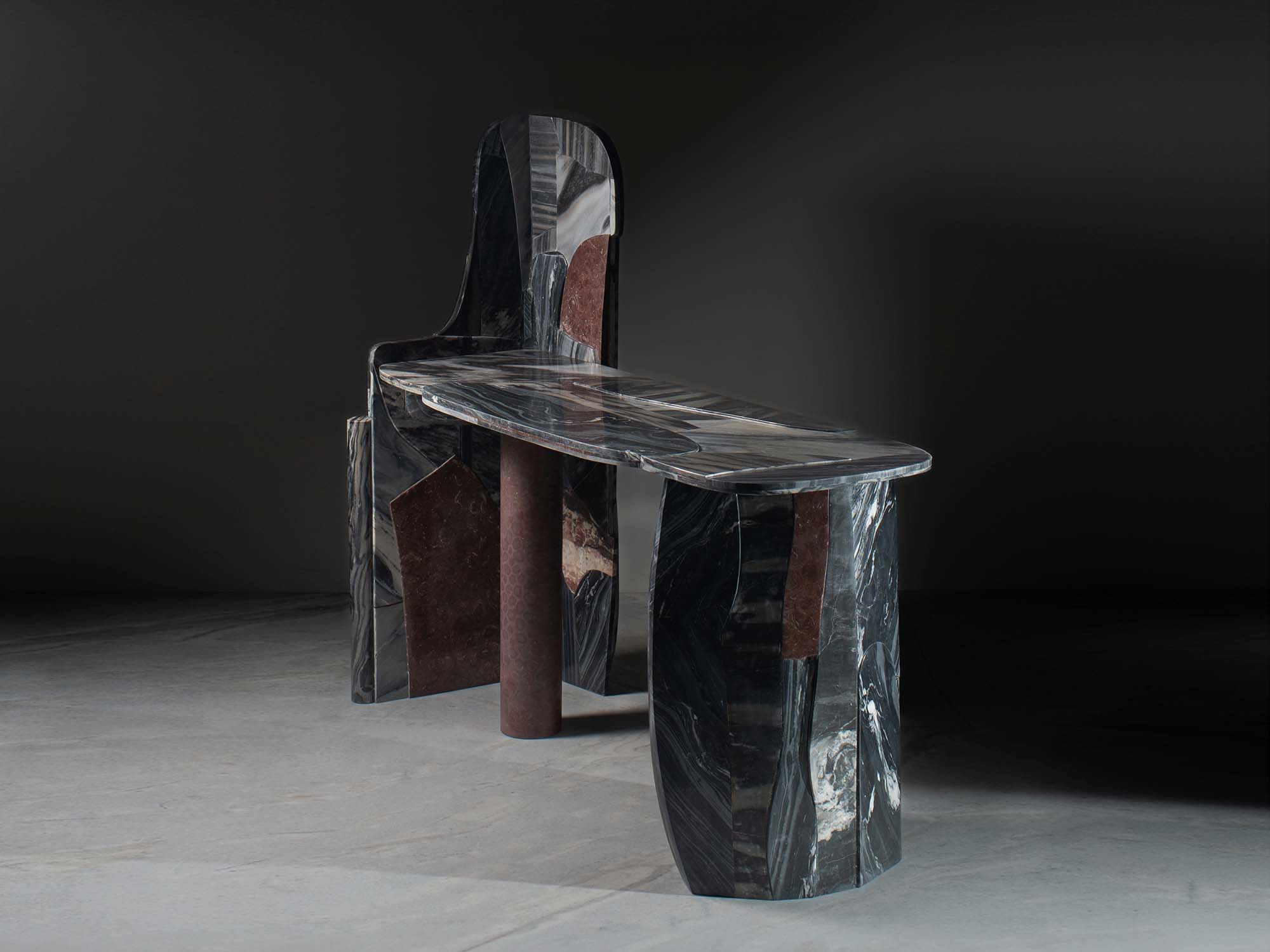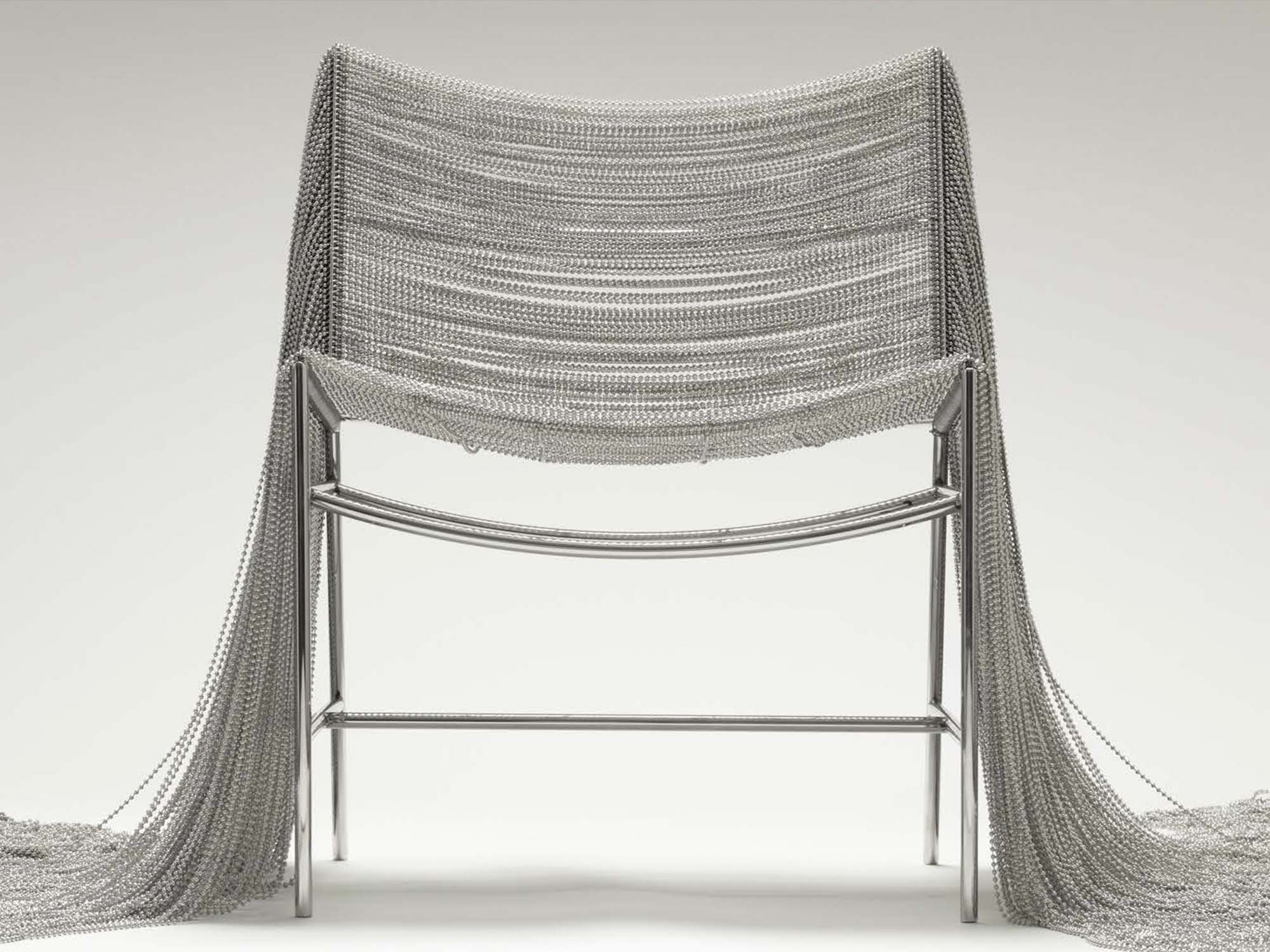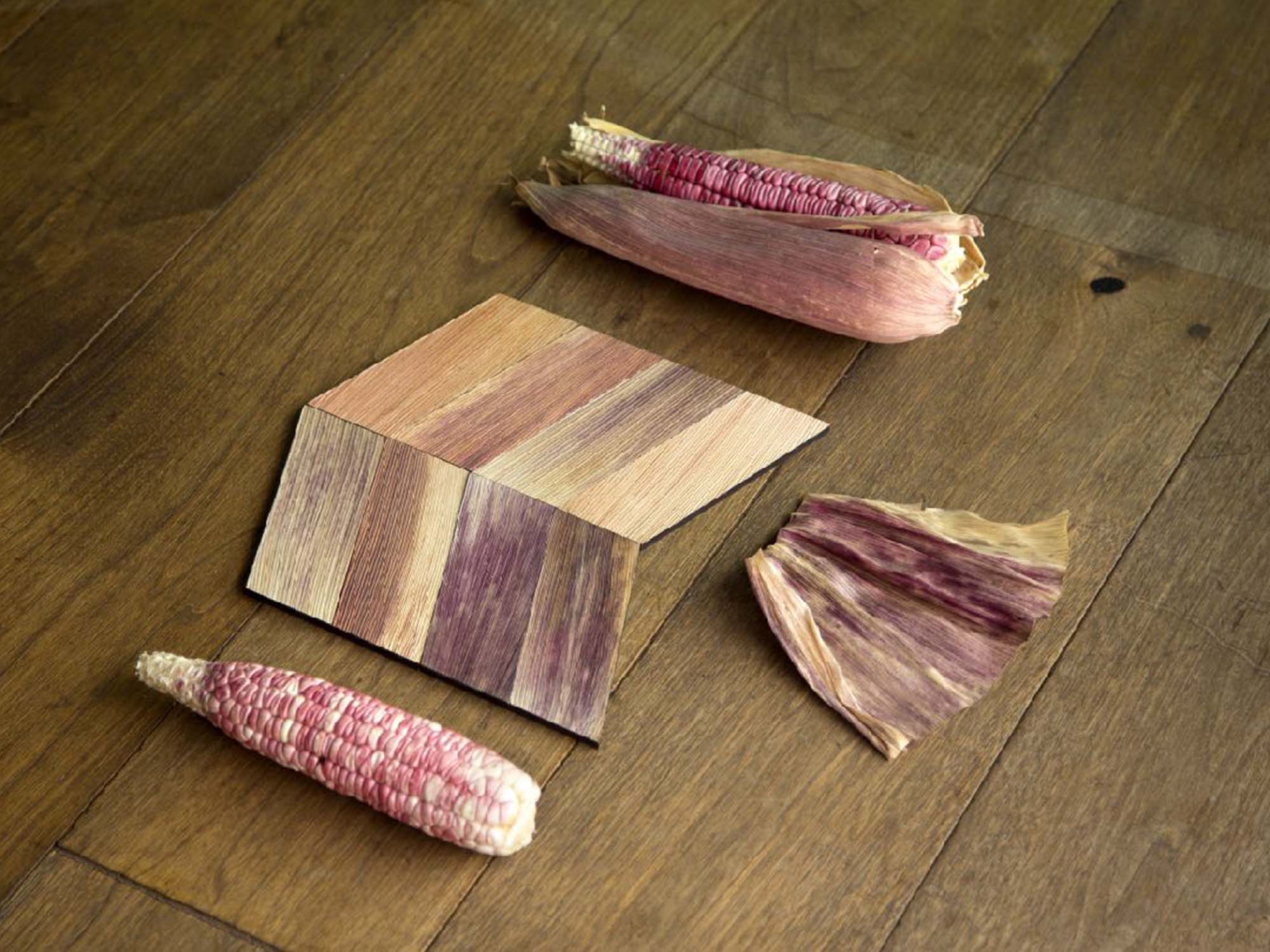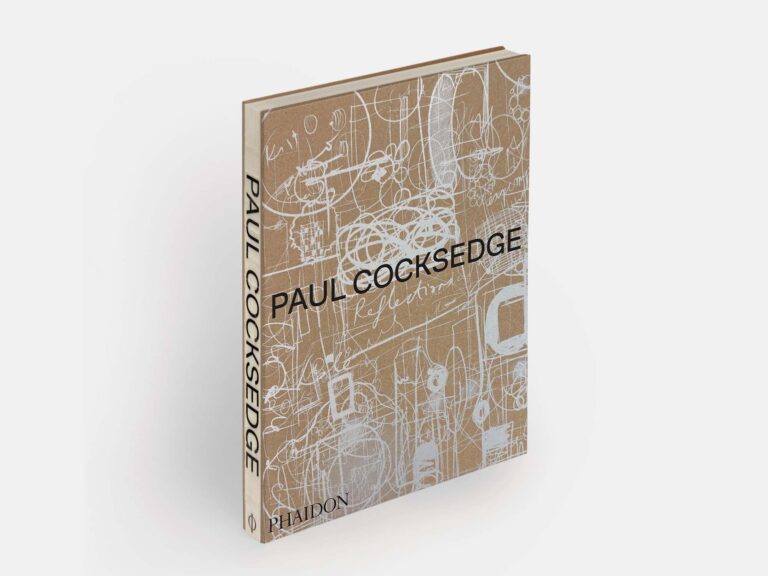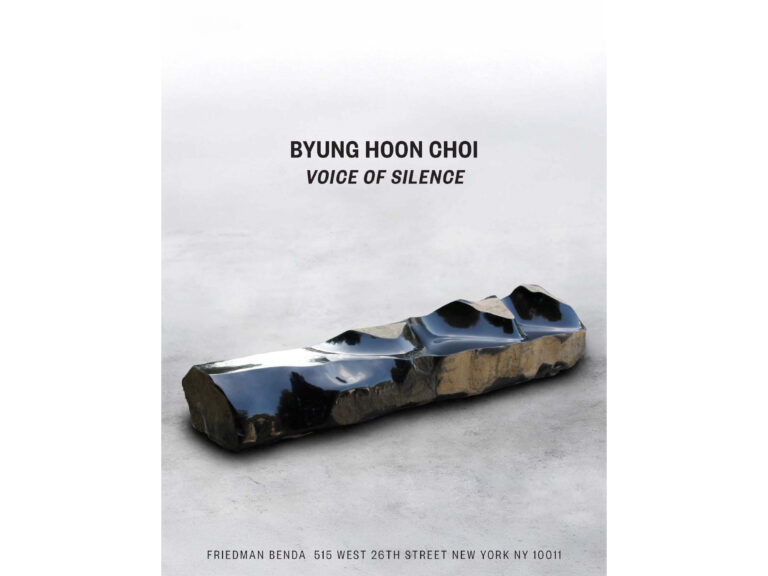As part of Design Miami/ Basel’s Design at Large 2019 program, Friedman Benda will present an installation by Israeli designer Erez Nevi Pana (b. 1983). The exhibition will debut works from his acclaimed Bleached series. Motivated by the consequences of mineral extraction in the Dead Sea, with this body of work Nevi Pana imagines a possible constructive outcome from humanity’s interference with nature. For Bleached, Nevi Pana submerges wooden structures encased in luffa into the Dead Sea—leaving them to crystallize like coral formations. Transforming these minerals into otherworldly, architectural forms, Nevi Pana comments on the convergence of the organic with the ornate. Bleached was nominated for the Design Museum’s Beazley Designs of the Year award in 2018, and will be included in the upcoming Design Triennial at the Cooper Hewitt, Smithsonian Design Museum and Cube design museum.
Through Bleached, Nevi Pana explores the potential of design research and development, and asks how can it influence and reposition material consumption. Bleached encompasses the idea that everything is interconnected: the shrinking of the Dead Sea, the extraction of potash to fertilize the soil for agriculture from which we feed cattle, the gas emissions from animal farming such as methane and carbon dioxide, the global warming and the bleached corals — all are linked to one another in a ripple effect of human actions.
For the project, Nevi Pana created totemic objects that were dipped in the fifth pond of the Dead Sea. Each object is covered with locally-sourced luffa which is then submerged in the sea allowing the sponge-like fiber soaks up the salt and the object itself acts as a salt pump. The luffa becomes a habitat for the growing crystals which in turn, strengthen the ties between the wooden elements by consolidating them into one strong piece. Aside from the overarching metaphors inherent to salt, the salt plays a technical role as a binding agent.
Beyond the specific and poignant symbolism, Bleached offers a new way to speak about design. It suggests responsible, ethical, and sustainable process. It’s an expression which encourages reflection and re-thinking about materials used by designers, buy as consumers, and neglect as a society.
Nevi Pana’s approach is informed by his veganism and animal rights activism and he was the winner of PETA’s Vegan Homeware Award for Innovation in 2018. Nevi Pana earned his BA in Design from the Holon Institute of Technology and an MA from the Design Academy Eindhoven where his thesis focused on the recrystallization of salt, and is currently researching the topic of vegan design as a doctoral candidate at the University of Art and Design in Linz, Austria.
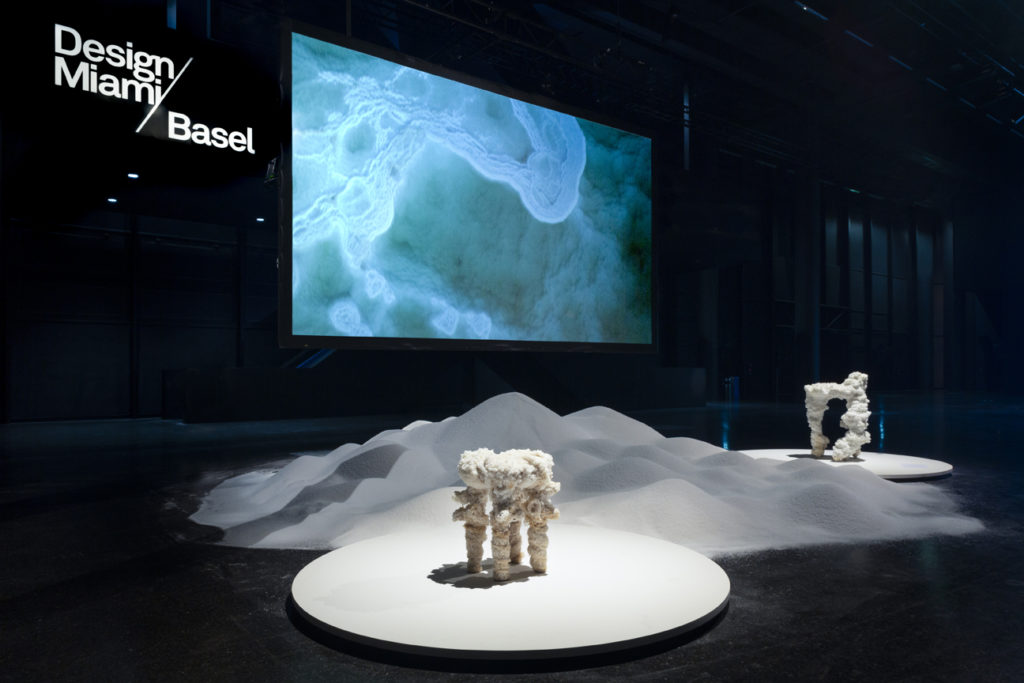
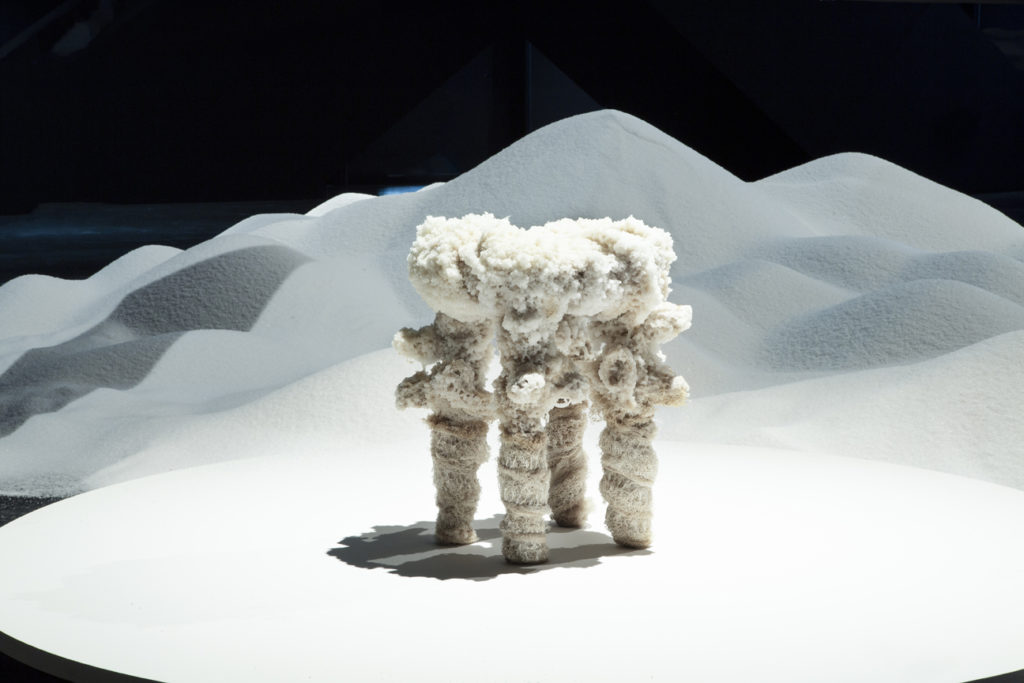
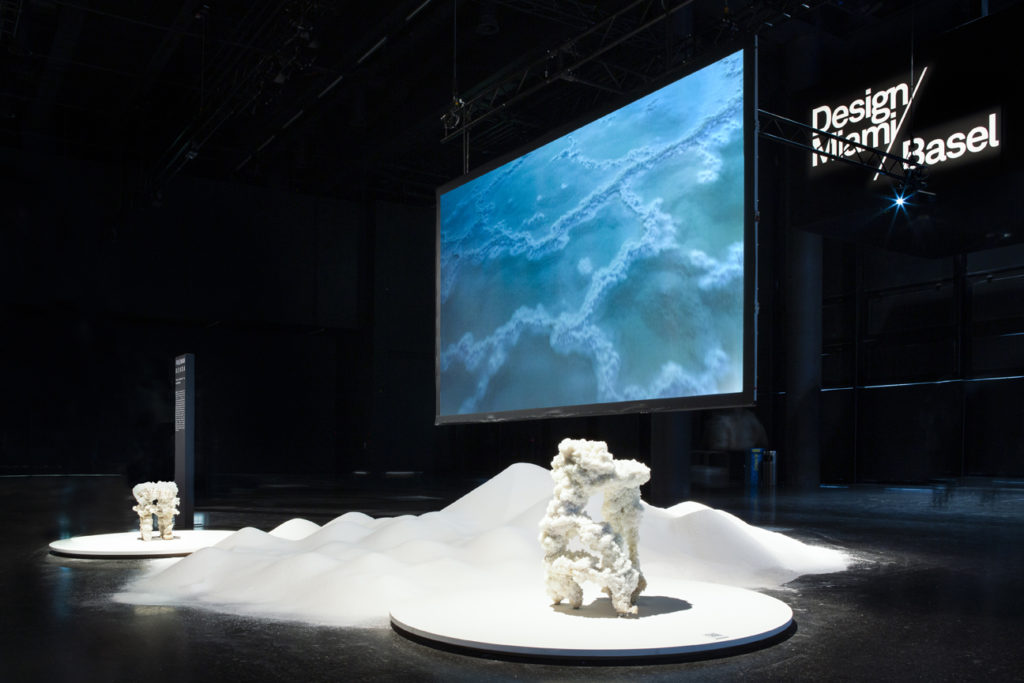
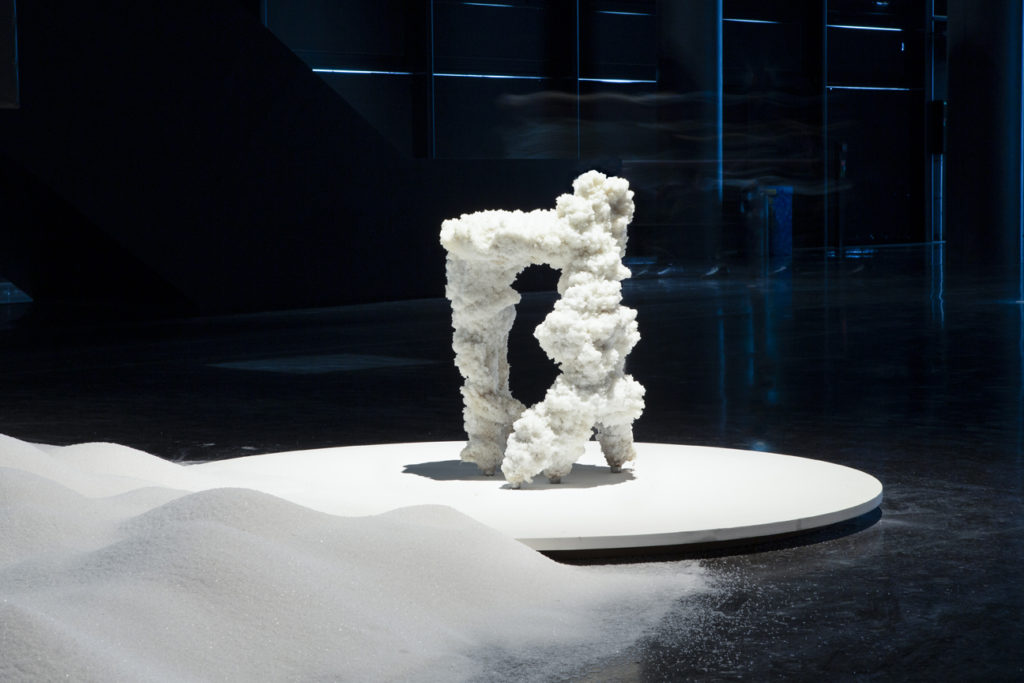
ABOUT EREZ NEVI PANA
A vegan and passionate animal rights activist, Erez Nevi Pana’s practice is based on investigating natural phenomena and environmental processes through material exploration.
Born in Bnei Brak, Israel in 1983, Nevi Pana earned his Bachelor of Arts in Design from the Holon Institute of Technology in 2011 and Master of Arts from the Design Academy of Eindhoven in 2014, where his thesis focused on the recrystallization of salt. After graduation, Nevi Pana formed La Terrasse in Eindhoven as a platform for designers, artists, writers and thinkers in 2015.
Nevi Pana’s investigations of salt has developed into a long-term research project; he has been working with salt in the Dead Sea for the past eight years—investigating the devastating imbalance of an over-abundance of salt caused by the industrialization and mineral extraction of the region. The culmination of this research is a body of work entitled Bleached (2018), where Nevi Pana submerges wooden structures encased in loofah into the Dead Sea to absorb the wasted salt, which then crystallized like coral formations over time.
His works have been exhibited at museums worldwide, and have recently been included in the Beazley Designs of the Year exhibition (2018-19) at the Design Museum in London, and in Nature: Cooper Hewitt Design Triennial (2019-2020) co-organized by the Cooper Hewitt, Smithsonian Design Museum in New York and the Cube Design Museum in Kerkrade, the Netherlands.
Nevi Pana’s works have been acquired in the permanent collections such as The Design Museum Holon in Israel, and the FRAC Grand Large – Hauts-de-France in Dunkerque. In 2020, Nevi Pana created Crystalline, the world’s first commissioned work of salt-based architecture, which will debut in the National Gallery of Victoria’s NGV Triennial (2020-2021) in Melbourne and enter the museum’s permanent collection.
He is currently researching the topic of Vegan Design as a doctoral candidate at the University of Art and Design in Linz, Austria. Nevi Pana is based in Tel Aviv, Israel.
